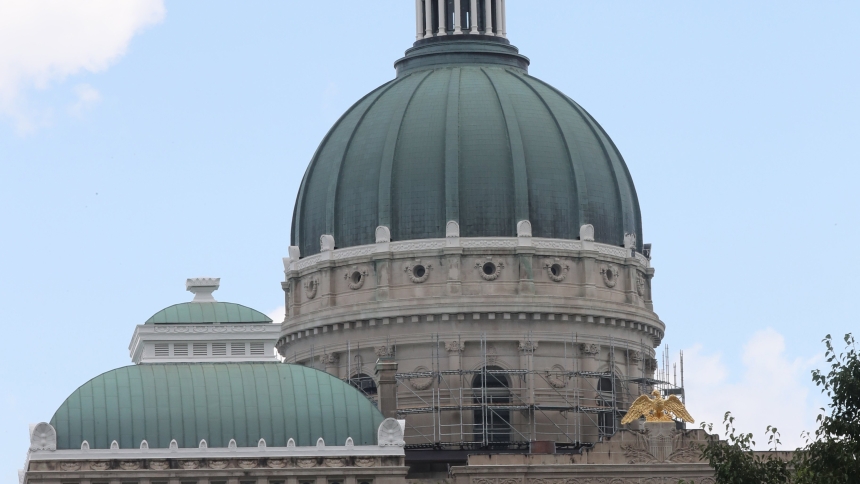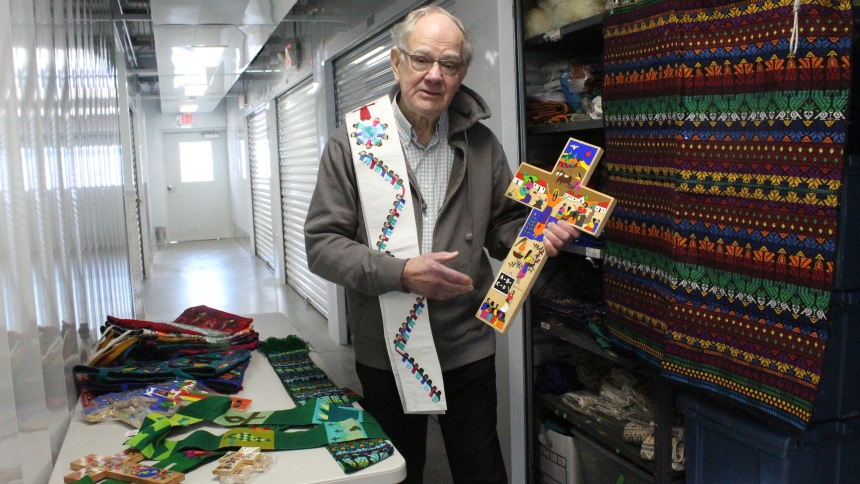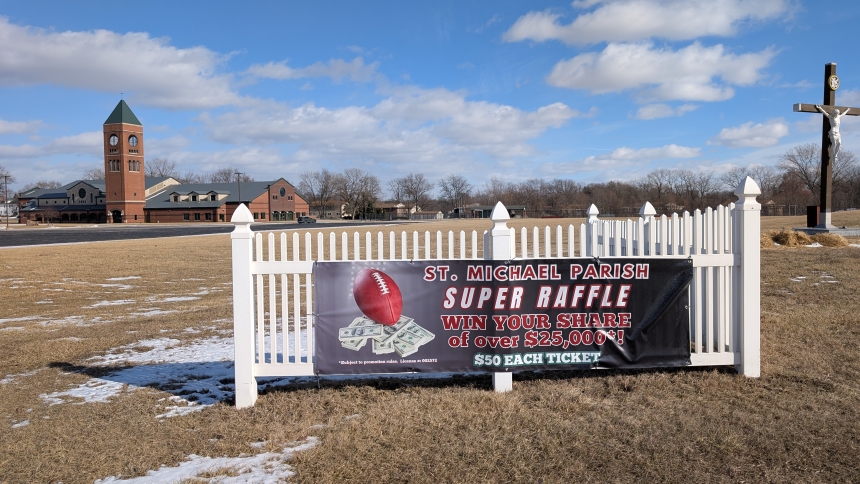
With Indiana’s first state execution in 15 years scheduled for Dec. 18, the Indiana Catholic Conference (ICC) is already working to promote legislation for the 2025 General Assembly – set to begin on Jan. 8 – that would eradicate the death penalty in Indiana.
Indiana Rep. Bob Morris (District 84) “has filed a full death penalty repeal bill that will have the option of life without parole,” said Alexander Mingus, executive director of the ICC, which serves as the public policy voice for the Church in Indiana. Morris, a Catholic, designed the bill to adhere to Church teaching, which opposes the death penalty. He also sent a letter to the governor urging him to suspend an execution in Michigan City.
“The recent Supreme Court decision to return the matter of abortion to each state and Indiana’s Special Session thereafter resulted in tremendous upheaval in my heart regarding the value of every human life,” he said in a letter to the governor. “My view of this issue is driven by my faith. I believe only one position honors our Lord and Savior, our Creator: to protect all human life.”
Joseph Corcoran of Allen County is scheduled to be put to death Dec. 18 unless the Indiana Supreme Court intervenes. His guilt is not in question, but his long-term mental illness is at the heart of efforts to block the execution.
To identify where state legislators side on this issue Mingus said the ICC is “working with partner organizations” and noted that “the topic will be a primary focus for the ICC.”
‘The death penalty is not the solution’
One of those reasons is the Church’s opposition to capital punishment.
Before 2018, the Church allowed for the death penalty in extreme circumstances for the protection of others, as outlined in #2267 of the Catechism of the Catholic Church. In 2018, Pope Francis issued a change to #2267 – and to the Church’s stance on capital punishment.
All death penalties were declared inadmissible because “the dignity of the person is not lost even after the commission of very serious crimes” and “… more effective systems of detention have been developed, which ensure the due protection of citizens but, at the same time, do not definitively deprive the guilty of the possibility of redemption.”
“The Catholic Church has consistently sought to protect human life from conception to natural death,” stated Bishop Robert J. McClory of the Diocese of Gary. “In 1999, Pope St. John Paul II emphasized that ‘the new evangelization calls us to be unconditionally pro-life,’ and that ‘modern society has the means of protecting itself without definitely denying criminals the chance to reform.’ More recently, Pope Francis emphasized the Church’s opposition to the death penalty in the Catechism of the Catholic Church: ‘The death penalty is inadmissible because it is an attack on the inviolability and dignity of the person.’” (CCC 2267)
The Church recognizes the harm that results when punishment takes a life. “Everyone – the convicted, the executioner and all of society are affected by the violence of this punishment,” said Bishop McClory. “We do not dismiss the evil and harm caused by people who commit horrible crimes. We share in the profound sorrow and even anger experienced by the victims, but we stand by them with trust in the Lord and respond as we are called to, with mercy.”
“Popes John Paul II, Benedict XVI and Francis have argued against the use of capital punishment, pointing out the security of modern prison systems as well as the impact of capital punishment on society and humanity,” said Archbishop Charles C. Thompson of the Archdiocese of Indianapolis.
“Pope Francis has used words like ‘inadmissible,’ ‘contrary to the Gospel,’ ‘an attack on the dignity of the human person,’ ‘fostering vengeance rather than justice’ and ‘a poison for society’ in describing the death penalty.
“While our first concern is for victims and their families, as well as protection for all those in society, the death penalty is not the solution. It cannot bring back loved ones, heal wounds of loss or bring justice to the victims.”
Another reason for seeking an end to capital punishment is the possibility of executing an innocent person.
According to the Death Penalty Information Center’s online Innocence Database, 200 exonerations of those on death row have occurred in the United States since 1973. “That’s a scary thing to think that you could find innocent people on death row who could be executed,” said Mingus.
Added urgency as state executions set to resume
A more pressing issue for the ICC to promote a bill eradicating capital punishment in Indiana (while allowing life without parole) is the June 26 announcement by Indiana Gov. Eric Holcomb and Indiana Attorney General Todd Rokita of the resumption of the death penalty in Indiana. (Read the ICC’s response on behalf of the five Indiana bishops at indianacc.org/bishopsstatements.)
While several federal executions took place at the U.S. Penitentiary in Terre Haute in 2020, the last state-ordered execution occurred in 2009.
In a Dec. 11, 2019, Indianapolis Star article, the Indiana Department of Correction (DOC) stated the hiatus was “the result of business decisions by pharmaceutical suppliers who now decline purchase requests” from the agency.
The supply issue recently changed. The June 26 statement noted the DOC’s acquisition of the drug pentobarbital for carrying out executions.
“Accordingly, I am fulfilling my duties as governor to follow the law and move forward appropriately in this matter,” Gov. Holcomb said in the June 26 statement, posted on events.in.gov.
On Sept. 24, the Indiana Supreme Court set a date for the first of the executions, Corcoran, a Fort Wayne man convicted in 1997 of murdering four people, including his brother.
Corcoran’s attorneys filed a motion with the Indiana Supreme Court on Nov. 15 for a stay of execution scheduled for Dec. 18, at the Indiana State Prison in Michigan City, citing Corcoran’s life-long struggle with mental illness, according to the case summary at public.courts.in.gov.
The Indiana Supreme Court will review both responses, although no date has been announced regarding when it will issue a ruling.
‘We’re praying for hearts to be moved’
Regardless of the outcome, the state’s resumption of executions adds urgency to the ICC’s efforts to promote legislation in the upcoming General Assembly that would abolish the death penalty in Indiana.
Father Rick Holy, director of pro-life activities for the Diocese of Gary, has planned a prayer service to take place on the eve of the scheduled execution. According to Father Holy, it will be a time of peaceful prayer, not a rally. Bishop McClory will lead the prayer vigil on Dec. 17 at 8 p.m. on the sidewalk outside the main entrance to the Indiana State Prison in Michigan City.
Governor-elect and current U.S. Senator Mike Braun has not issued comments regarding the resumption of state executions. Nor do his gubernatorial campaign or senate websites state his view on capital punishment.
However, according to Braun’s comments in an April 19 Indiana Capital Chronicle article, he does support the death penalty “for those guilty of the most heinous of crimes.”
Mingus said those involved in efforts to repeal Indiana’s death penalty are praying.
“We’re praying for hearts to be moved – of our current governor, our new governor and our legislators; for them to turn it over in their minds if this is something they’re okay with the state doing; and for them to consider the fundamental question: Can the death penalty be justly administered in our current context?
“We say no.”
To ask Gov. Holcomb to stop the execution of Joseph Corcoran, go to cutt.ly/StopCorcoranExecution. To learn more about public policy issues, go to indianacc.org.
Editor’s Note: NWIC staff contributed to this article.



